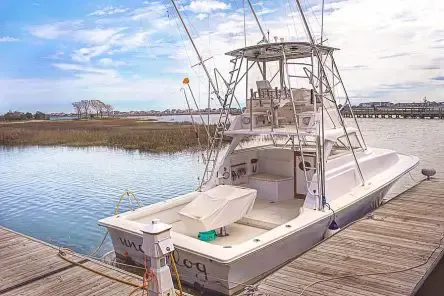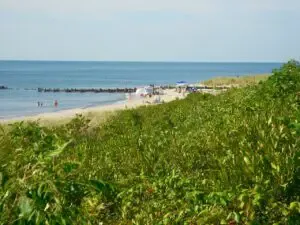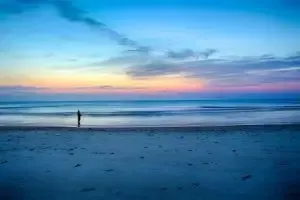Whether or not you need a license to fish on private property is not a straightforward answer. Many states have complicated this topic with special land body requirements, pay to fish regulations, and private to public water regulations. Fishing on pay to fish property does not require a fishing license. You only have to pay the fee.
Why do States Require a Fishing License?
Long ago, during the days of the wild west and the great frontier, fishing licenses were not needed. Anyone can go to a stream or pond in the ocean and start fishing to earn their food for the day. But this kind of conduct is not such a good idea anymore.
The main reason why every state requires a fishing license is to regulate and control the number of fishers within the state and prevent overfishing and depopulation. When states first created fishing licenses, it was only for those who lived out of state to fish in that state’s waters. But as migration occurred and babies were born, it was then required that all people who practice fishing must have licenses.
Can I Fish on Public Waters that are Only Accessible through Private Property?
The rules surrounding fishing in public waters do not change if they are only accessible through private property. This means that those who own the private property on the waterfront must also purchase a fishing license if they wish to fish from their property. If they do not, they will be subject to seat fines and other various punishments set by each state.

What is a “Pay to Fish” Pond or Pay Pond?
These are lakes or ponds that require all fishermen to pay a fee so they can have access to the body of water for a certain amount of hours in a day. These fishing areas are not filled with natural fish but with farm-raised fish that are shipped in from farm-raised hatcheries. You do not need a fishing license to find these types of properties. All you need to do is fill out a form and then agree to the pay lake or pond’s rules. You must also pay its required fee.
These types of private establishments are seen more as a recreational area than a fishing area. A pay to fish establishment often has a lodge or inn where food, snacks, drinks, and games are provided. Those fishers who do not have a lot of experience fishing choose to go to pay to fish properties so they can learn to fish and improve their skill in a controlled environment.
Many of these private properties also feature more than one type of fish. There are also dirt roads built on the property for easy navigation between the lakes or ponds. When the fishing season begins in the regions, it is not strange to see pay-to-fish places offer classes to those who are not that experienced.
How to Find Out if I Need a Fishing License?
The first step a fisher needs to take is to go on their state’s wildlife and fishing resource website. Each state regulates its fishing and hunting conducted within their borders and any lakes, oceans, and rivers that they share with other states.
Do I Need a Fishing license for Privately-Owned Ponds?
Unfortunately, this answer is not straightforward. There are several requirements that a privately owned pond must meet if the owners would like to enforce the use of fishing licenses. But they are always free to eject fishers who are on their property without permission. Here are just a few of the private property requirements:
- The pond is licensed out to the fish program that is run by the state department.
- The state government has stalked the pond with fish within the last ten years.
- More than one person owns the land and the lake or pond. If this is the case, then only the landowners that may fish without a license.
- There is a stream continually flowing out of the pond and into public water.
License Requirements for Fishing on Private Properties with Ponds by State
A fishing license is required for:
- Alaska
- Arkansas
- California
- Colorado
- Connecticut
- Hawaii
- Minnesota
- North Dakota
- New Hampshire
Here are a few of the states that have special requirements when it comes to fishing from private property:
- Oregon allows private property owners to fish onto public water without a license if they are not catching, steelhead, salmon Sturgeon, or halibut. Catching these fish does require a license.
- South Dakota does not require a fishing license for property owners to fish from their property on public waters.
Penalties for Fishing Without a License
If you are caught fishing anywhere in your state without a fishing license, the penalties for you could be monetary and a possible restriction from fishing for up to a year. The punishment depends on if it is your home state, or you were caught in a different state. If it is your first time without a license, you may be able to get off with just a warning. However, if this is a repeat offense, it could mean that you will face jail time and a complete fishing restriction within the state.
If you are caught both on private property without permission, and you do not have a fishing license, you can receive a charge for trespassing along with a citation to fish illegally.
Fishing licenses are required to be affordable, so we suggest that you purchase one even if you are only fishing for a single day.
Conclusion
There are many different facets of fishing on private property. You should always get the owner’s permission if you can, and if you are a property owner that owns a pond or lake that has fish, it may not be legal for you to fish on your property without a license. Pay to fish Lakes are ideal if you are a beginner, and if you own a waterfront property that touches public waters, you need to have a license to fish.



